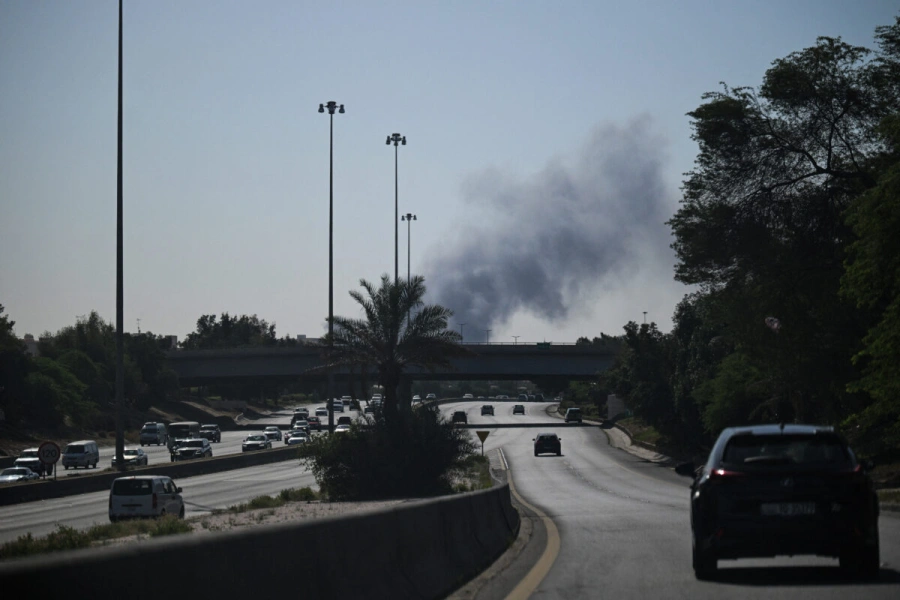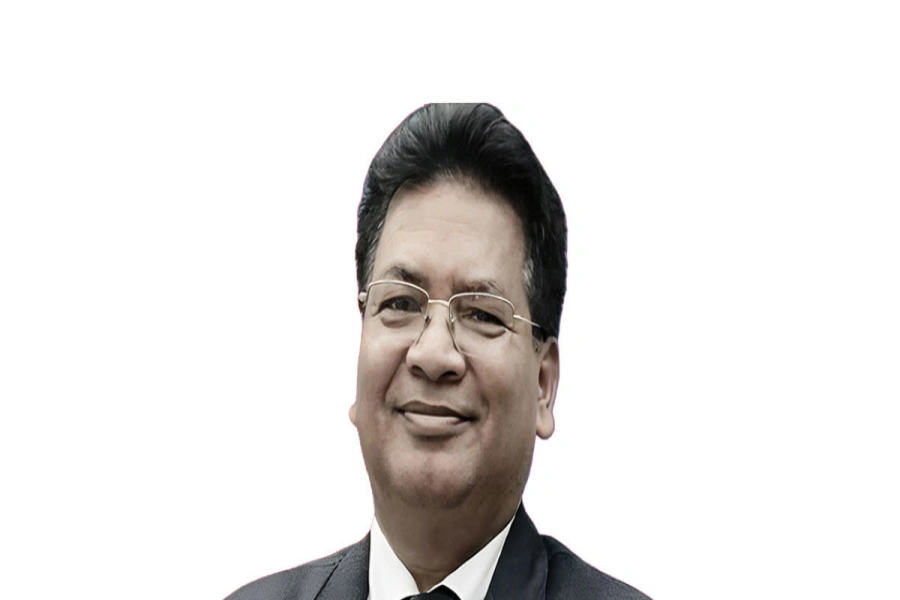Kenichi Yokohama, chief of the Asian Development Bank (ADB) Nepal Representative Mission (NRM), has completed his tenure in Nepal. He is moving to New Delhi, India for his next assignment. Before flying to New Delhi to take over his next assignment, Yokohama talked with Kuvera Chalise of Republica on his experiences in Nepal, ADB-funded projects and the long-awaited Melamchi Water Supply Project. Excerpts:
How will the existence of Asian Infrastructure Investment Bank (AIIB) change the ADB strategy in Nepal?
We are not necessarily competing with each other. If you look at Nepal's development needs, AIIB's focus is on infrastructure and ADB is focused on infrastructure as well as human capital building, agriculture and governance. But given the huge development needs of Nepal, we have been advised by our top management that we work together. ADB is currently providing funding above 1 percent of the GDP, whereas Nepal needs investment of some 10 percent of GDP in infrastructure sector. In that sense, there is lots of need. Essentially, we don't see competition. We can work together to help Nepal build more infrastructure. Likewise, as AIIB is new, there could be scope to further strengthen their system like project design preparation and implementation support, among others.
But the absorptive capacity of the government has not been increased. In that sense, how can both the development partners invest in infrastructure sector?
We have been lending around US$ 300 million annually. The government agencies hardly spend half of it. Last year we saw record spending that was around 70-75 percent. And this year we are targeting 100 percent. If we increase lending, we have to come together to building or supplementing the government's absorptive capacity also. In case of bigger infrastructure project, international engineers contractually manage and supervise the contractors, and the government's role is to manage these engineers. When we work together, there must be a component to build absorptive capacity of the government supplemented by international engineers.
But the last experience with TIA and Gautam Buddha Airport was not very pleasant. What happened?
In Nepali environment, dealing with locals is extremely complex. When the foreign contractor comes in Nepal, they do not have much knowledge about the local issues. In case of TIA, the contractor, after coming to Nepal, found that the quarry sites they were expecting to use was closed down, which really made them difficult to continue work, and they quitted. In case of Bhairahawa Airport, the foreign contractor appointed sub-contractors illegally without verifying their capability and experience.
Those are typical examples. Foreign contractors are really encouraged to understand the issues with the locals. For this, bidding process needs to be changed. Nowadays, we have started making sure that they have very strong local contractor as a partner. It will make things easier for the foreign contractors.
Nepal in priority for investment: AIIB

Most of the Nepali contractors claim that some of them are better than foreign contractors, and they are better in understanding the law, local sentiments and issues. But they do not get chance. How can the Nepali contractors improve their standard when they do not get chance?
As per the contractual requirement, contractors need to have $100 billion-size contract experience.
The skill of Nepali contractors, in that sense, is still under developed. That's a constraint. But as the country's infrastructure need is bigger, we are hopeful that we are looking at joint ventures where foreign contractors can mix their experience and local expertise. In that way, local contractors can also gain experience. On the other hand, we can divide the bigger packages into smaller ones and include domestic contractors. In short, we can say that the local issues, and capacity of the local contractors that is below the international standard, and foreign contractors, who do not have the knowledge of the ground level, have hampered development activities.
Do you think the upcoming election for local bodies can help expedite the development works?
Let's hope so. When you elected representatives in local bodies, it will increase accountability and public service delivery. Elected governance can also help end political interference like Bhaagbanda or the spoils system. Once elected local representatives are in place, there will be more trust and accountability mechanism that will help expedite development activities. The local government will also help the government engineers to push development works forward. It will definitely create enabling environment. But at the same time, there should be a system of risk control and capacity building.
Latest reports say that the long-awaited Melamchi project will not be completed by October-end as has been planned. What will be the move of ADB if the project is delayed?
At this time, we are convinced that it will be completed by October-end. On the other hand, the uncertainty comes from geology, particularly the lower part of the tunnel that is geologically fragile.
But in my understanding, the parties involved are regularly meeting and updating the progress. They will try to meet the deadline and adopt the corrective measure. Anyway if the delay is caused by external factors like geology, then contractor cannot be blamed. In this case, there is a provision of extension. But the party is committed to complete the project on time.
Melamchi has made Kathmandu a dusty city. What is ADB doing in this direction?
We are also concerned. It is also a matter of environmental compliance. There is a high standard for dust management system and it is clearly written in the contract. The contractor must adhere to environment compliance. Although the contractor is also stressed to expedite the work, they cannot say that they cannot follow the contractual agreement. We have been suggesting them to make sure priority sections, from where majority population passes, are handled seriously and swiftly. We also suggested them to put the name of the contractors and sub-contractors on signboard at the project site so that people can call them regularly and remind them of their duty. We are having number of meetings and sometimes think of going to the extent of suspending the contract. But we also need water as soon as possible.
ADB is helping the government to set up a Public-Private-Partnership (PPP) Center. As the BOOT Act, brought some 10 years ago, has not been very encouraging, do you still believe that PPP model can be useful in Nepal's case?
The existing BOOT Act has been structured, assuming that private investment will come in the infrastructure sector. It is working in hydropower sector. Affordability is key for PPP to work in infrastructure model. As the existing BOOT Act has a very limited role of government in terms of financing, that is a constraint. The new PPP Act has envisaged stronger government support in the financial part.
But the issue of revenue sharing in PPP has always been a controversy. How does the new PPP Act manage that?
Eventually, the PPP Policy will have the revenue sharing structure. But, initially, there must be some kind of technical assistance. The PPP Center has also demarcated its role with Investment Board (IBN). IBN looks after bigger projects, whereas PPP Center is looking at some pilot projects like toll roads or urban land pooling. The new PPP Act or Policy will look at financial structuring under the PPP Centre. In that case, we need transaction advisor, who will try to bring best solutions, and also look at regulatory aspects to see if the deal is fair for both the government and the private sector. A PPP Center cannot do such complex works, it needs technical support. ADB can provide such support by building its capacity.
How can ADB help to build capacity of private sector?
If it's a small and medium PPP, domestic private sector also needs capacity building. Apart from that, there is also a need for sector-specific capacity building. When potential projects are selected and bidding process starts, we will make sure that the bidding process is fair and the private sector of that specific sector that comes in needs capacity building. In case of big international bidders, for example TIA, an experienced foreign investor will come and we will support joint venture that will help in capacity building. There are some projects like convention centre and also Nalsinghgadh storage hydropower project where we see private sector coming and working with the government.
Developments partners are often blamed for interfering in projects. What is your experience over these years?
Our advice helps projects to move ahead. Our counterpart agencies take it as facilitation and legitimate recommendations are taken positively. But if a mission leader comes and tells to do things from his view without listening to others, then people will take it as interference.
How has been your experience in Nepal?
Nepal has enormous challenges as well as opportunities. The number one challenge is physical environment which affects everything, hindering efficiency and other work like reaching to people and building human capital that is not only key to development but also to graduate to middle-income country by 2030. Quality of education, skill sector reform, and social and economic infrastructure are the other challenges for Nepal. Similarly, agriculture productivity needs to be increased. Increased governance capacity and political stability is also important to make these things happen.






































